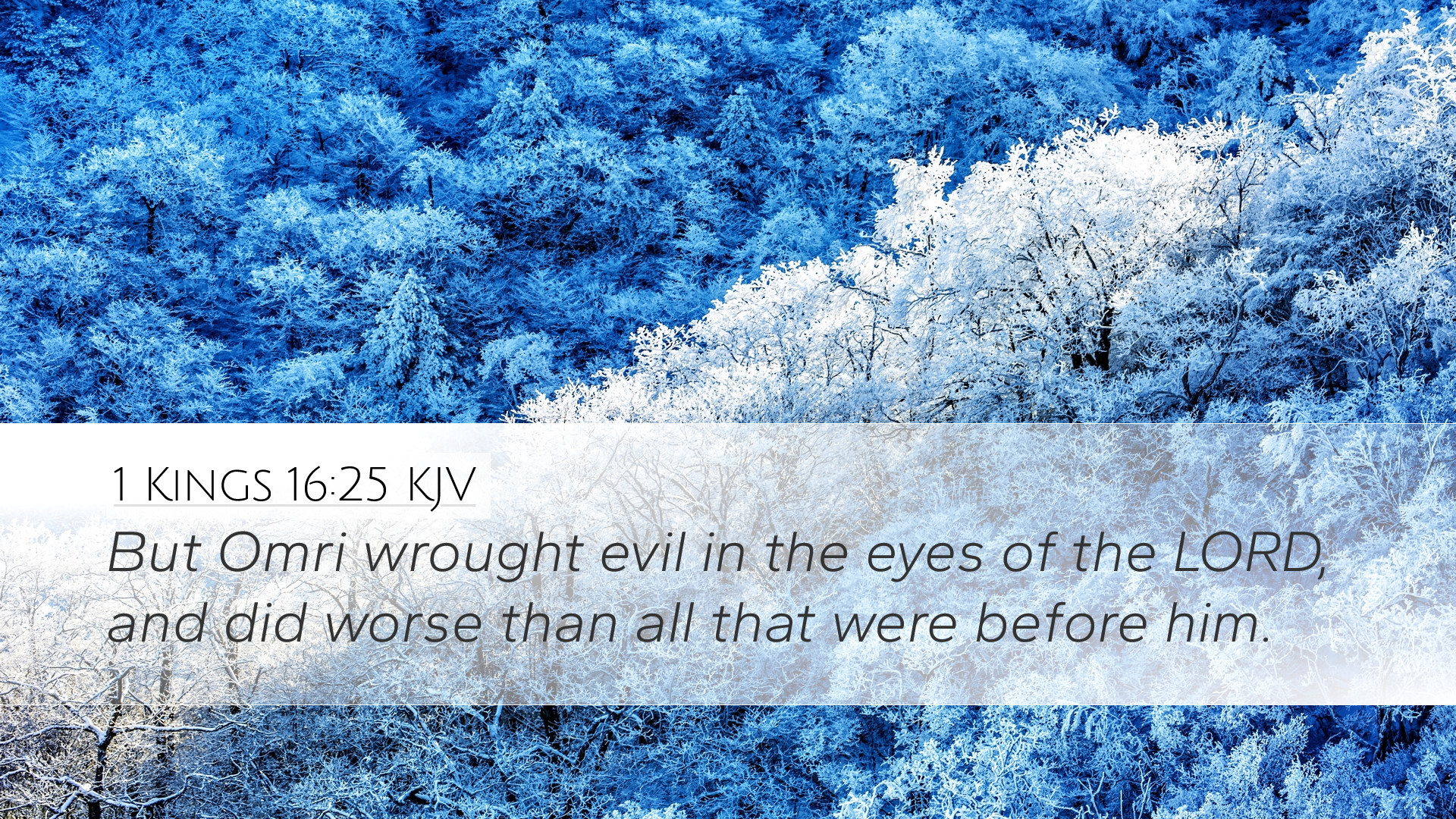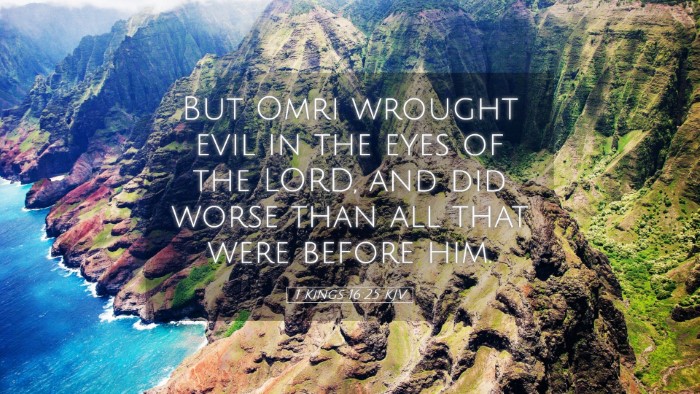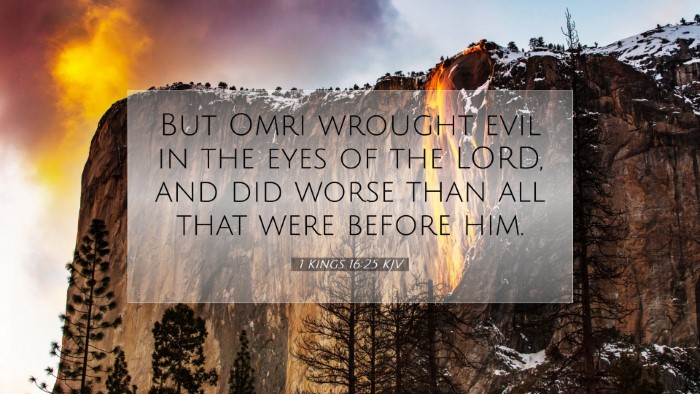Commentary on 1 Kings 16:25
Verse: "But Omri wrought evil in the eyes of the LORD, and did worse than all that were before him."
This verse serves as a critical observation of Omri's reign over Israel, marking a significant moment in the history of the northern kingdom. It sets the stage for the ongoing apostasy and moral degradation that characterized this period.
Contextual Background
Omri ascended to the throne during a tumultuous time for Israel, a period marked by civil strife and the struggle for power among rival factions (see 1 Kings 16:16-21). His rule is seen in the context of a transition from the fragmented leadership of the previous kings to a more consolidated form of governance.
The Nature of Omri's Evil
Omri's Actions in Contrast to His Predecessors:
- Omri's actions are described as "evil in the eyes of the LORD," a frequent biblical phrase indicating actions that are abhorrent to God's standard.
- His reign is marked by significant political and military achievements but is overshadowed by moral failures, particularly in leading Israel into idolatry.
Moral and Spiritual Implications
Omri's reign represents a turning point where Israel increasingly turned away from Yahweh. Commentators emphasize that moral failure often precedes national disaster. Omri's implications can teach modern readers about the weight of leadership and the spiritual responsibilities that come with power.
Comparisons with Other Kings
Worse than All That Were Before Him:
- This phrase highlights the cumulative nature of evil in Israel's leadership. Each successive king builds upon the iniquities of their predecessors.
- Matthew Henry points out that Omri's legacy is one of deepening corruption: his reign initiates a pattern that leads to future kings who continue in this trajectory away from God.
Theological Reflections
The Sovereignty of God:
The narrative surrounding Omri reflects God's sovereignty over nations and rulers. Despite the evil actions of leaders like Omri, God remains in control, and His purposes will ultimately prevail.
The Grave Consequences of Idolatry:
Omri's legacy includes the establishment of Baal worship in Israel, showcasing the dangers of leading a people away from true worship. Adam Clarke emphasizes that such choices invite divine judgment and societal decline.
Application for Today
For contemporary pastors and theologians, Omri's reign serves as a cautionary tale about the importance of righteous leadership in both church and society. It calls for vigilance against idolatry and the influence of secularism in modern culture.
Leadership Responsibility
Leaders should learn from Omri's failures—that authority comes with the sacred duty to uphold God's values, lest they lead others astray.
Worship and Idolatry
Engagement with Culture:
Like Israel's leaders, today's leaders must navigate complex cultural landscapes. The challenge is to engage without compromising on the truth of God's Word.
Conclusion
1 Kings 16:25 serves as more than a historical note; it invites rigorous reflection on the nature of power, accountability, and the impact of leadership choices on the faith community. Through the lens of Omri's reign, the faithful are reminded of the enduring truth that leadership in any form must be aligned with God’s moral and spiritual directives.


